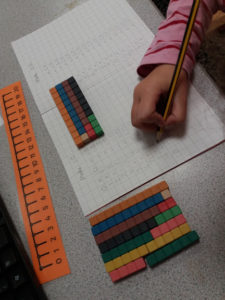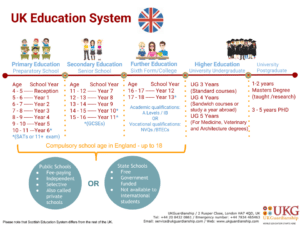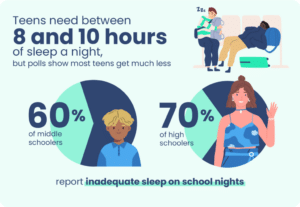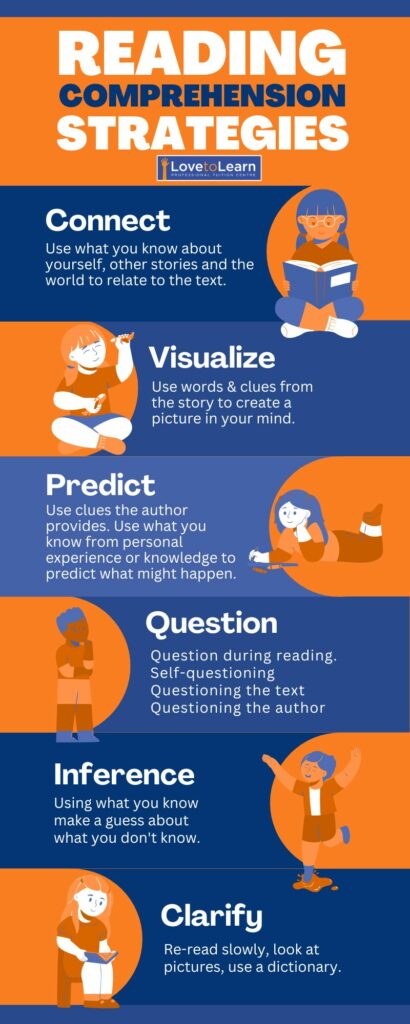Dyscalculia
What is Dyscalculia?
Navigating your child’s educational journey can be a rewarding yet challenging experience. As your child progresses through school, you may encounter various learning differences. One such challenge is dyscalculia, a term you might have come across but might not fully understand. In this guide, we’ll explore what dyscalculia is, its possible indicators, and provide insights to help you support your child.
What is Dyscalculia?
Dyscalculia is a learning difficulty that specifically affects a child’s ability to acquire mathematical skills. Unlike a temporary struggle with a particular concept, dyscalculia is a persistent condition that hinders the development of basic arithmetic skills, number sense, and mathematical reasoning.
 Possible Indicators:
Possible Indicators:
- Difficulty with Basic Arithmetic:
- Struggles with basic addition, subtraction, multiplication, and division.
- Difficulty in understanding and remembering mathematical facts.
- Poor Number Sense:
- Struggles to grasp the magnitude of numbers.
- Difficulty in comparing numbers or understanding their order.
- Spatial and Temporal Challenges:
- Difficulty understanding and using concepts of time and space in a mathematical context.
- Struggles with understanding and using graphs and charts.
- Memory Challenges:
- Difficulty in recalling mathematical concepts and sequences.
- Struggles to remember and follow multiple steps in problem-solving.
- Difficulty in Learning Mathematical Concepts:
- Finds it challenging to understand abstract concepts such as fractions and percentages.
- Struggles with understanding and applying mathematical rules.
- Inconsistency in Mathematical Performance:
- Demonstrates an inconsistency in mathematical performance, performing well in some areas but struggling in others.
 Understanding the Rarity of Dyscalculia:
Understanding the Rarity of Dyscalculia:
While dyscalculia can present challenges, it’s essential to note that it is relatively rare. Estimates suggest that approximately 5-7% of the population may have dyscalculia. This means that, though challenging, your child’s struggles with mathematics may not necessarily be indicative of dyscalculia. It’s crucial to consider various factors, including teaching methods, individual learning styles, and the pace of learning.
Supporting Your Child:
- Early Intervention:
- If you notice persistent challenges in your child’s mathematical development, consider seeking early intervention.
- Speak to your child’s teacher about observations and concerns.
- Multisensory Learning:
- Explore different learning methods that engage multiple senses.
- Incorporate visual aids, hands-on activities, and real-life examples into mathematical learning.
- Patient and Positive Encouragement:
- Provide a positive and patient environment for your child to learn.
- Celebrate small victories and progress, fostering a positive attitude towards mathematics.
- Professional Assessment:
- If concerns persist, consider seeking a professional assessment from an educational psychologist or specialist.
Conclusion:
In conclusion, dyscalculia is a specific learning difficulty that affects mathematical skills, but it is relatively rare. If you suspect your child may be experiencing challenges in mathematics, it’s essential to approach the situation with understanding, patience, and a proactive mindset. By identifying potential indicators early and providing appropriate support, you can empower your child to navigate the world of mathematics with confidence and resilience. Remember, every child learns at their own pace, and with the right support, they can overcome challenges and thrive academically.
Navigating the UK Education System: A Friendly Guide for Parents
The UK Education System Explained (England)
Hello, wonderful parents! If you’ve ever found yourself scratching your head over the UK education system, don’t worry; you’re not alone. Understanding the ins and outs of Key Stages, infant schools, primary schools, secondary schools, and sixth form colleges can seem like deciphering a secret code. Fear not, though – we’re here to break it down for you in a friendly and digestible way. Although there may be exceptions to what follows (e.g. some counties still have Grammar Schools), this is how schools are divided in the majority of UK education authorities.
Key Stages 1-4: The Building Blocks of Learning
Let’s kick things off with Key Stages. These are like the chapters in your child’s education book, and there are four of them: Key Stage 1 (ages 5-7), Key Stage 2 (ages 7-11), Key Stage 3 (ages 11-14), and Key Stage 4/GCSEs (ages 14-16). Each stage has its own set of educational goals and milestones, ensuring your little one gets a well-rounded education.
 Infant Schools: Where the Journey Begins (Reception to Year 1)
Infant Schools: Where the Journey Begins (Reception to Year 1)
Picture this: your child, waving goodbye, stepping into the world of education for the first time. Welcome to infant schools, the start of the adventure! Here, in Key Stage 1, kids dive into the basics of reading, writing, and arithmetic. It’s a time of discovery and play, focused on the building blocks of learning.
Junior Schools: Nurturing the Growing Minds (Year 2-6)
As your little explorer advances to Key Stage 2, they enter the realm of primary schools. These are the places where subjects get a bit more specific, and the excitement of learning truly takes flight. From science experiments to creative writing, primary schools lay the groundwork for a love of learning. Plus, with the support of fantastic teachers, your child begins to uncover their unique strengths and interests.
Primary Schools: (Sometimes Infant and Junior Schools are combined) (Reception to Year 6)
In some areas, children complete Key Stages 1 and 2 in the same school.
 Secondary Schools: Teenagers and Textbooks (Year 7-11)
Secondary Schools: Teenagers and Textbooks (Year 7-11)
Hold onto your hats, parents – secondary school is here! Key Stage 3 introduces a wider range of subjects, allowing your child to explore areas they may not have encountered before. It’s a time of self-discovery, both academically and personally. As they dive into Key Stage 4, those all-important GCSEs come into play. These exams set the stage for future academic endeavours, so buckle up for a few years of hard work and achievements.
Sixth Form Colleges: The Bridge to Adulthood (Year 12-13)
After the whirlwind of Key Stages 1-4, your teenager reaches the crossroads: sixth form colleges. Here, in the magical realm of college, they specialise in a few chosen subjects, which may be vocational or academic, with a wide range of qualifications available, e.g. apprenticeships– A-levels, BTECs, or T-levels. These qualifications can open doors to universities and shape the path for future careers. It’s a time of increased independence and responsibility, where your child transforms from a student to a young adult.
In a nutshell, the UK education system is a journey. It’s the tale of your child’s growth, knowledge expansion, and the blossoming of their unique potential. So, to all the parents out there, fear not! Armed with this friendly guide, you’re ready to be the supportive co-pilot in your child’s educational adventure. Here’s to the exciting chapters ahead!
National Curriculum: Key stages
The National Curriculum was established in 1988, provides a framework for education in England and Wales for students between the ages of 5 and 18. While the National Curriculum is followed by most state schools, some private schools and academies design their own curricula.
| Key Stage | School Year | Age | ||
| Primary Education | 1 | 1 | 5-6 | Primary education begins at age 5 and continues until age 11. At the end of Key Stage 1 (year 2) and Key Stage 2 (year 6), pupils take compulsory SATs (Standard Assessment Tests). |
| 2 | 6-7 | |||
| 2 | 3 | 7-8 | ||
| 4 | 8-9 | |||
| 5 | 9-10 | |||
| 6 | 10-11 | |||
| Secondary Education | 3 | 7 | 11-12 | During Year 9, students choose which subjects to study at Key Stage 4. These will be the subjects they take for their GCSE (General Certificate of Secondary Education) exams at the end of year 11. |
| 8 | 12-13 | |||
| 9 | 13-14 | |||
| 4 | 10 | 14-15 | ||
| 11 | 15-16 | |||
| Further Education | 12 | 16-17 | At the end of students’ secondary education, they can either pursue academic qualifications such as A-Levels or IB in order to go to university, or vocational qualifications such as NVQs and BTECs to prepare them for full time employment. | |
| 13 | 17-18 | |||
| Higher Education | University | 17+ | To find out more details about applying to universities in the UK, please visit University Application. | |
Time For Bed-Avoiding Sleep Deprivation
Is your child getting enough sleep?
 A recent report reveals that an alarming number of children are grappling with sleep deprivation, which is taking a toll on their academic performance.
A recent report reveals that an alarming number of children are grappling with sleep deprivation, which is taking a toll on their academic performance.
Smartphones, computers, and TVs in bedrooms have been identified as contributing factors to poor sleep patterns in children.
A single restless night can lead to irritability and difficulty concentrating the following day. The consequences of consistently inadequate sleep can be even more profound.
But how much sleep do children really need?
Although individual needs may vary, children should ideally aim for the following recommended hours:
– Pre-schoolers: 11 to 13 hours per night
– 5 to 12-year-olds: 10 to 11 hours per night
– Teenagers: 9 hours per night
Sleep Deprivation
Sleep disturbances during childhood and adolescence are common and can show up in various forms, such as nightmares, sleep terrors, sleepwalking, and irregular sleep patterns.

While these issues can often be temporary with consistent reinforcement of good habits, some children and young people may find themselves stuck in unhelpful routines.
If sleep problems persist or become a regular issue, it’s important to seek help as soon as possible. Parents or carers should reach out to school nurses for advice, especially if sleep difficulties are deeply ingrained and causing distress to families and children. Families can also seek guidance from their GP for further assistance.
Here are five practical suggestions to help children better manage their screen time:
1. Establish clear rules: Set clear guidelines for when and how long children can use smartphones. Stick to a consistent schedule and ensure they understand the importance of adhering to it.
2. Encourage other activities: Introduce them to outdoor play, homework hour, reading, or arts and crafts. It’ll help them explore new interests and reduce their reliance on screens.
3. Use parental controls: Take advantage of parental control features to block inappropriate content and limit screen time. It’s an effective way to monitor their activities.
4. Lead by example: Set a positive example by reducing your own screen time. Engage in tech-free family activities and have face-to-face conversations.
5. Designate screen-free zones: Identify specific areas such as the dinner table or bedrooms where phones are off-limits. This will encourage more real-world interactions and foster better communication within the family.
I’ve personally witnessed the effects of sleep deprivation on primary school pupils. One of the boys in my class was struggling academically, constantly appearing tired and unable to focus. It later emerged that he had been watching TV late into the night without his parents’ knowledge. Once he started getting adequate sleep, he became a completely different child at school.
While most experts agree that having TVs, smartphones, and computers in bedrooms isn’t ideal, the reality is that many children do have their own devices. Therefore, it’s crucial for parents to understand how to strike a balance between screen time and a restful night’s sleep.
Parents’ Evenings-How to Get The Most Out Of Them
Does your mind go blank as soon as you sit down with your child’s teacher?
Parents’ evening can be a hassle; fitting it in, dealing with childcare, and then remembering that thing you (or your other half) wanted to mention can be hard.
Here are some ideas to help parents evening run smoothly and make this important part of home school communication more productive.

Talk to the child
Ask your child if there is anything they are concerned about or want to say to the teacher. Communication is two way, and it will encourage/ help the teacher to know how the children are feeling.
Write it down
Make some notes and don’t be afraid to take them. What is the key thing you want to find out? e.g. How can I help at home? What is my child’s attitude to learning? What are my child’s strengths and weaknesses?( If your child is on the SEN register) Can I see the IEP (Individual Educational Plan)? How can I communicate with you more/better?
Focus the conversation
Talk about the child rather than the school. If you feel the school is doing something wrong or you don’t like a certain policy e.g. homework or behaviour, you need to take it up with the leadership (headteacher).
You only have 10 minutes(or maybe 15)!
Don’t store up big issues: make an appointment with the teacher if there is a big problem to discuss, or it can’t be covered there and then. Teachers need to get through a long list of appointments, so overrunning your time stresses out the teacher and makes them late for other parents.
Aim to be positive.
At times we do have issues we are concerned about but try not to start on the offensive. Explain your concerns and ask for solutions and support. Essentially parents and teachers want the same thing, happy children making good progress. If you aren’t happy arrange to speak to the headteacher.
A little thanks
Even if things are not going to plan, try to find something to say thank you for. As everyone knows a little gratitude goes a long way.
Remember, parents evenings are only part of home school communication so don’t be surprised if 10 minutes is not enough. Is most cases teachers are happy to talk more at a convenient time.
Dyslexia Guide
What is Dyslexia?

We often hear children and adults described as ‘dyslexic’, but what do we mean and are we right? There are many different views on what dyslexia actually is and definitions vary across cultures and professions. In fact there is no right or wrong answer, as there is no one accepted definition for dyslexia.
In broad terms dyslexia is mainly a language based learning disability. Those affected have problems acquiring and retaining literacy skills such as reading writing and spelling. It is now widely accepted that dyslexia can also affect a number of other areas including memory, organisation, concentration and even balance. This is why processing information can be so difficult for dyslexics.
However, many famous people who have had varying degrees of dyslexia, such as Albert Einstien, Winston Churchill and Richard Branson, were not prevented from becoming highly

successful in their chosen fields. Dyslexia does not have to prevent people from achieving. But, because it affects the way people process information it can, as a result, affect their ability to learn. This processing difficulty can be due to a number of reasons:
![]()
| • A marked inefficiency in the working or short-term memory system
• Problems connecting the letter patterns with the associated sounds (phonics) • Difficulties ordering or sequencing; this may also show itself as clumsiness caused by the brain sending the wrong signals to parts of the body in the wrong order • A range of problems connected with visual processing and accessing the memory of visual patterns
|
At I Love To Learn Professional Tuition Centres children (aged between 6 and 16) are offered free assessments, in reading, writing, spelling and phonic awareness. Parents are given an opportunity to discuss their children’s individual needs and receive advice. They also offer tuition to help children overcome the specific difficulties that they are having. Educational plans are tailor made using the information gained at the assessment.
At I Love To Learn ‘We are aware that dyslexia is an umbrella term and therefore like to assess each child in order to determine their particular needs. For those who wish to receive support at one of our centres we design individual lesson plans and target areas for development. We also praise children’s strengths and boost their confidence as children can feel very negative about their difficulties in this area.
If a child comes to us for tuition we see them either once or twice a week for 80 minute sessions. During this time they will use both written and computer based resources and complete up to six activities. Success is built in and the progress they make is built upon weekly. This is supported by weekly homework as well. It sounds a lot but the children love seeing their skills grow. It is so rewarding to see children become more confident readers and writers.’ Knowing your child is at risk of Dyslexia and then knowing what to do about it are two different things. We want to be active in being part of the solution.
Times Tables Competition
Take Part in Our Times Tables Competition

Times tables are really important in math and life. Here’s why:
1. Practical Use: We use multiplication in everyday situations like shopping or dividing things evenly among friends. Knowing times tables helps us quickly and accurately calculate these things.
2. Building Blocks: Times tables are the foundation of maths. They’re essential for understanding advanced concepts in algebra, geometry, and calculus. Without them, it’s harder to solve complex problems.
3. Mental Maths Skills: Memorizing times tables improves our ability to do calculations in our heads. It boosts critical thinking and makes us more confident in our math skills.
4. Academic Success: Knowing times tables helps us understand math better and perform well in exams. They make learning new maths operations easier and give us a solid foundation for higher-level maths.
So, how can we master times tables?
– Firstly, practice! Regularly use flashcards, online games, or math drills to reinforce multiplication facts and improve recall speed.
– Look for patterns and relationships between numbers. This helps us understand the logic behind times tables and makes solving problems easier.
– Don’t forget to make it fun! Find creative ways to practice, like creating songs or using manipulatives, to make learning times tables enjoyable.
Remember, mastering times tables is key to excelling in maths and everyday life.
Competition Time
So, let’s see how fast can you roll the times tables on your hands? Roll them through, time yourself and enter our competition.
Year 2& 3 roll 2x 5x 10x 11x
Year 4,5 & 6 roll 3x 4x 6x 8x
KS3 roll 7x 9x 12x
Instructions: Hold up your fists like a boxer. Choose a times table (just the answers) and then from right to left count them on each finger. Once you get to ten fingers, start again for the last two numbers.
Now, take a look at the video as an example from I Love to Learn Portsmouth.
Look at more examples here on Youtube
Read More About SATs Prep Here
Prizes to be won
Ask your tutor to time you
Enter before December 20th 2025
Becoming an I Love to Learn Centre Director-Grazia Naylor
Grazia joined us as tutor and Centre Manager a few years ago. In 2023 she became our first Centre Director, taking on full responsibility for the brand new Fareham Centre.
Taking the Next Step
I came to teaching later in life and worked as a secondary mathematics teacher for over ten years. In that time I used tutoring to make extra income.
I Love to Learn was the next step in my journey and I became a tutor with them in 2020. The training they have provided over the past few years has given me the confidence to help students, not just with mathematics, but also with English, Early Reading, and 11+ tuition. Howard and Linda (the founders) have been fantastic mentors. Little did I know when I joined that I would become their business partner!
The Fareham centre was due to move and, when it did, I moved with it. I changed from being a classroom teacher to being the Fareham Center Director. Being a Centre Director means you are responsible for all parts of the business – building the business through sales and marketing (with the support and help of Howard), to managing finances and accounts (with the support and help of Linda) through to making sure the centre always looks smart. I love it because, although I am autonomous, I am not alone.
The fabulous new Fareham Centre is now going from strength to strength. Nearly all our sessions are at capacity, I work with amazing tutors (we’re always looking for more) and the future is looking bright. I get a bonus and profit share, so it is also rewarding.
If you are thinking of making a change, in what can sometimes be a stress-fuelled industry, then I Love to Learn could be the solution to your work-life balance. I have certainly never regretted joining them. Grazia Naylor.
11+ Common Entrance Exams Guide
11 Plus Common Entrance Assessments Advice and Tips

When and how are the 11+Common Entrance Assessments taken?
11 Plus Common Entrance Assessment
Taken in winter of Year 6 (dates my vary from school to school so please check) : in English, Maths, Verbal Reasoning and Non-Verbal Reasoning.
N.B. The exams are set by each independent school individually so may vary.
Some regions have 11 Plus Entrance Test for state Grammar Schools. This is not the case in Hampshire. The nearest areas with state 11 Plus exams are Dorset, Surrey and Berkshire.
see: https://www.elevenplusexams.co.uk/forum/11plus/
When should we start preparing our child for the exams?
This of course will vary from child to child. For the average to strong child, we would recommend getting a full assessment at about a year before: e.g January of Year 5. You can do this yourself by buying 11 Plus assessment tests or visit a tutor or tutoring centre that has experience with 11 Plus. After that you will be able to decide which areas to focus your efforts on.
If students are significantly behind in maths or English, then I would suggest an earlier start in, at least, the beginning of Year 5.
How should I prepare my child for the exam?
Make sure the school you choose is the right one for your child:
Independent schools and grammar schools may be more academically competitive than most. Some children thrive in this environment, and it is absolutely right for them, but not for everyone. Also, some schools may also expect excellence in areas like sport and music. Again, this is wonderful for some children but not so for others. Make sure you do your homework, visit the school and talk to as many people as possible about it.

Get the current class teacher on side:
Chat to your child’s teacher about where your child is at and if there are areas for improvement. Let them know that you have high expectations for them and want them to be pushed. They should want to encourage this as it will be good for the school’s results too!
Make a good plan and stick to it:
Make a clear routine and stick to it. There are a number of routes you can take. Home learning, employing a tutor, using a specialist tuition centre or online courses. Most children won’t volunteer to do extra maths and English lessons, so there will need to be some buying in and some rewards at the end (and possibly in the middle). If you truly believe that the effort will be worthwhile, pass or fail, then it is worth pushing through.
Actively developing a wide range of vocabulary will be essential.
One of the core reasons some children are successful in their 11 Plus Exams and others are not is because some children have a wider vocabulary than others. This has to be developed in context and can’t really be taught by rote. Talk about stories, books and characters. Read stories to them, hear them read and play story CDs in the car. It helps children to hear stories before they write them. I am afraid TV is too chopped up and fast moving to hold any narrative, so minimise this.
The secret to good maths basics is rock solid times tables.
Practice and re-enforce basic maths skills such as timed tables. It’s an essential skill that will improve accuracy but also fluency (getting it right but also completing more questions).
Reduce stress, anxiety and pressure as much as possible.
Of course, all this extra work and preparation is bound to lead to some stress for your child. This is a normal and natural part of life and you will know how much is too much. Keep to routine by making sure they are well rested and get plenty of exercise. Avoid late nights or sleepovers during this time.
Too much pressure reduces mental maths ability and vocabulary recall by around 10%-30%, that’s enough for a bright child to not be as successful as was envisaged. Be warned, do everything you can to make preparation as fun, relaxed and as enjoyable as possible. Make sure your child knows that the world will not stop turning if they are not successful.
Click here to find out more about the 11+ Exams date in January…
The 6-week Summer
English and Maths Tuition in the Summer (Portsmouth, Fareham & Havant)
Summer days are always welcome. The sunshine and that extra Vitamin D always makes us feel more positive. However, academically, the summer holidays can be detrimental. It is a long time to not be engaged with learning. The old adage “If you don’t use it, you lose it” holds true, not just for our physical skills but also for our intellectual skills.
One of the best ways parents can combat the “brain drain” and enable children to be ahead of their peers at the start of the Autumn term is to attend booster sessions over the summer holiday. These involve two hours of English and Mathematics at a level that will help with a student’s confidence and enable them to improve in these core subjects. We have three weeks available and you can book individual sessions at a time to suit you.
So, what are you waiting for? Sign up by following this link:
https://www.ilovetolearn.co.uk/summer-school-and-catch-up/
Improve Your Reading Comprehension with I Love to Learn
Fun With Reading Comprehension!
At I Love to Learn Professional Tuition, we are often asked by parents about how to help children with their reading. Here are some reading comprehension skills to master.
comprehension skills to master.
- Preview:
Before diving into a text, take a moment to preview it. Skim the headings, subheadings, and any bold or italicized text. This gives you an idea of what to expect and activates your prior knowledge.
This is a skill you might use when reading a newspaper. Most people don’t read every word, they just skim the headlines and read the articles that they are interested in.
2. Ask Questions:
Engage with the text by asking yourself questions as you read. Who are the main characters? What is the main idea? Questioning helps you stay focused and encourages deeper understanding.
It helps if someone else can do the asking so that you have to explain it to them.
3.Visualize:
Create mental images of what you’re reading. Imagine the setting, characters, and actions in your mind. Visualizing helps you connect with the text and enhances comprehension and retention. What would it feel like to be in the story?
Good reading leads to good writing. Practice visualization and you will become better at creating good description yourself.
4.Summarize:
After reading a section or passage, pause and summarize the main points or key events in your own words. This helps consolidate your understanding and highlights any areas that need further clarification.
5. Monitor and Adjust:
Be aware of your comprehension as you read. If something doesn’t make sense, reread or look up unfamiliar words. Adjust your reading speed and strategies accordingly to ensure maximum comprehension.
Remember, practice makes perfect! These strategies can improve your reading comprehension skills and make your reading experience more enjoyable and rewarding. Happy reading!






